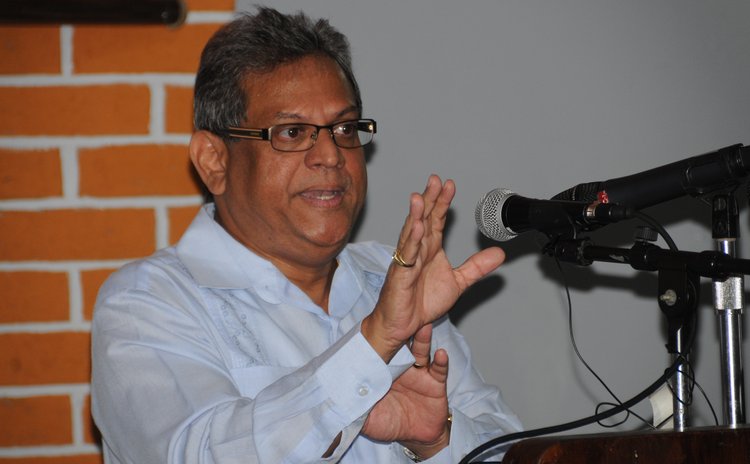Obesity: a Caribbean Dilemma

The Caribbean has now become the amputation capital of the world. We lose lower limbs because of diabetes in the Caribbean than any other region in the world and again it has to do with a lot of practices that is peculiar to Caribbean people.
So stated Professor Dalip Ragoobirsingh, the professor of Medical Biochemistry and Diabetology and Director, Diabetes Education Programme in the Faculty of Medical Sciences at the University of the West Indies (UWI) Mona Campus.
"The last survey in Dominica shows 20% of the adult population was obese; over weight here is like 45% and adult here is taken as 15 years and over," he said.
Our main problem is our diet, both in terms of the quantity and the quality. Our caloric intake is always in excess of our bodily requirement and the excess is always laid down as fat, he said.
Professor Ragoobirsingh noted that obesity is a major risk factor for diabetes and that diabetes causes other health complications.
"Diabetes is the leading cause of blindness; it is also responsible for diabetic nerve problem; also the risk factor for hypertension, heart attack and stroke," he said.
"The common metabolic problems in obese people is high fats in the blood and usually when the blood fat reaches a certain critical level it begins to bruise the vessels of higher blood pressure which will include those that feed the head, those that feed the heart and those that feed the kidney," said the Professor.
In addition, he said "diabetes is starvation in the midst of plenty, because you have a lot of food in the blood but it is not available to the cells, so the organs are telling the brain, we are starving; so patients are constantly hungry".
Caribbean people have seen bushes and herbs as natural healing remedies; though it true for some, a few have shown to cause medical problems and in terms of diabetes mask the blood sugar.
"Among regions including London, where there are Caribbean people, bush tea is wildly used. There are indeed some components in some of the bushes which may show an improvement in blood sugar, sometimes it masks the sugar or sometimes it may actually be lowering the blood sugar," stated Professor Ragoobirsingh.
The lecture was hosted by the University of the West Indies in collaboration with Dominica Medical Association and Optical Services Ltd. It was part of a series of annual lectures held in honour of the late Bernard A. Sorhaindo. It was held on August 21, 2013 at the Fort Young Hotel.
Furthermore, Dr. Ragoobirsingh gave his audience useful advice regarding foot care and diet for people who are diabetic.
"First of all wear your size, your shoe should not be too tight or too slack in fact they should be comfortable and for that to happen they are best bought mid-morning our feet is smallest in the morning when we get up from sleep and largest in the night when we retire.
"My suggestion to you is to wear cotton because it mucks up the sweat beneath your feet and keep them dry.
"Wash feet with water and soap and dry especially between the toes; examine the foot bottom with a mirror, cut nails with clipper; remember the feet are furthest from the head so sensation in the feet goes quickly. And don't soak your feet in hot water.
"Always try to maintain a near normal blood glucose. Make sure the diet you are taking is nutritionally adequate, that your lipids is at an optima level, maintain a reasonable weight. Try to at least 50% of your calories from staples; peas and beans are low in fat and high in carbohydrates," said Ragoobirsingh.




